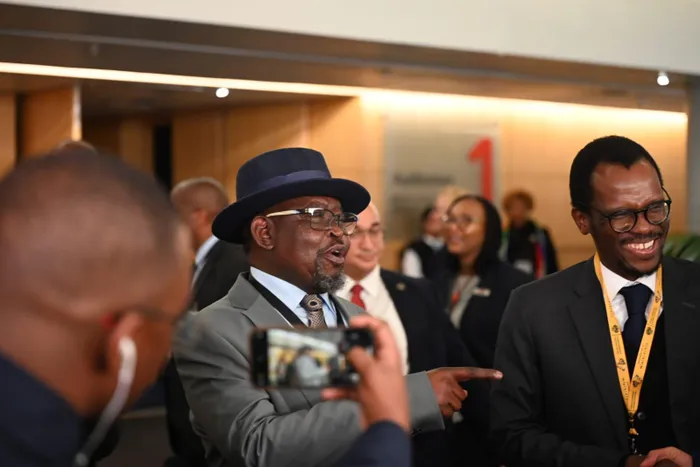Decoding Budget 2025: Insights and impact of Enoch Godongwana’s address

Following his Budget Speech at the Cape Town ICC on Wednesday, Finance Minister Enoch Godongwana believes he has earned the support of both Parliament and the public.
Image: Ayanda Ndamane/Independent Media
Finance Minister Enoch Godongwana is confident he has charmed his way into the hearts of Parliamentarians and the nation following the delivery of his Budget Speech at the Cape Town ICC on Wednesday.
In a case of third time lucky, Godongwana said the overall reaction following his speech was happiness, except for a few.
"Generally, the charm is there. Everybody is happy. Yes, I am happy," he told Newzroom Afrika.
Godongwana added that he expects a robust debate on the Budget Speech.
"I would be dreaming if I don't expect a serious debate over this budget. There will be debate, which is necessary. My point is, how can we make sure that the debate is constructive. It must be solution-driven," he said.
Here’s a summarised list of key points from his address:
- Introduction of Key Documents:
The Minister tabled several important documents including the 2025 Division of Revenue Bill, 2025 Appropriation Bill, and the 2025 Budget Review, which serve as foundations for the country’s fiscal approach.
- VAT and Fiscal Sustainability:
Despite debates surrounding a proposed increase in Value Added Tax (VAT), the Minister confirmed that the VAT will remain at 15%, indicating the government's commitment to fiscal sustainability while addressing developmental goals.
- Non-Interest Expenditure Growth:
The budget outlines an average increase of 5.4%in non-interest expenditure over the next three years, including a focus on the social wage to ensure spending addresses the needs of the population.
- Economic Outlook
Global economic challenges, including increased trade tensions and inflation concerns, are anticipated to impact South Africa's growth, with real GDP projected to grow at 1.4% in 2025, lower than earlier estimates.
- Fostering Inclusive Growth:
The budget framework emphasizes four pillars for fostering investment: maintaining macroeconomic stability, implementing structural reforms, enhancing state capacity, and accelerating infrastructure investment.
- Fiscal Strategy & Debt Management:
Strategies in place aim to stabilise debt at 77.4% of GDP while reducing the main budget deficit, which should yield a growing primary surplus to facilitate lower borrowing costs over time.
- Structural Reforms:
The budget reiterates commitment to ongoing structural reforms across various sectors including energy, water, and logistics, aiming to clear economic bottlenecks and stimulate growth.
- Tax Revenue and New Proposals:
With projections revised down by R61.9 billion, the government announced only an inflation-linked increase in the general fuel levy as a new tax proposal, taking measures to enhance revenue collection without increasing VAT.
- Spending Priorities and Targets:
The budget maintains allocations aimed at addressing public service needs, including education and healthcare, with specific funding increases to improve resources for frontline services.
- Infrastructure Investment:
Over R1 trillion is allocated for infrastructure projects, focusing on improving transportation, energy, and water systems, which are crucial for stimulating economic growth and providing essential services.
- Efforts Against Corruption:
The budget stresses the government's ongoing commitment to tackling corruption, with an emphasis on accountability and efficient use of public funds, including measures by the National Prosecuting Authority.
IOL
Related Topics: